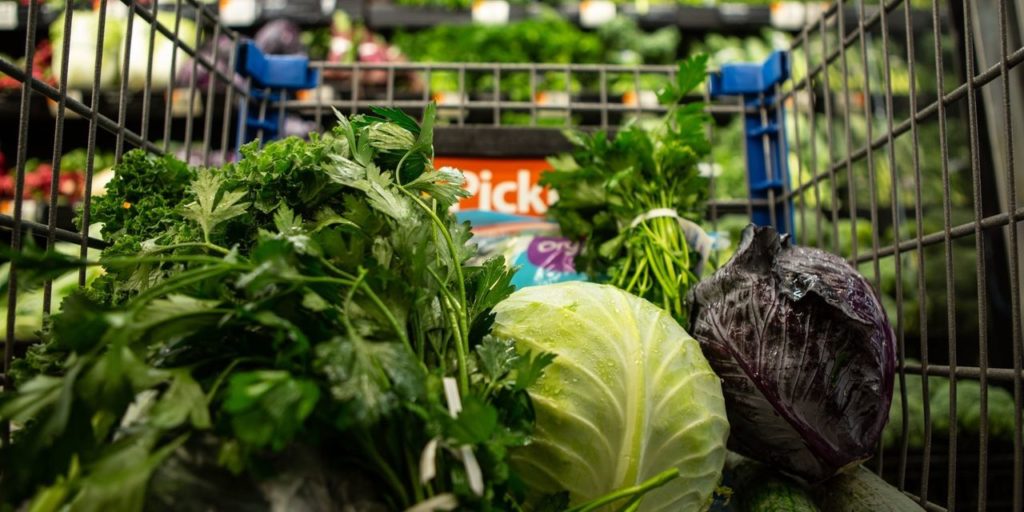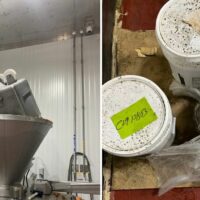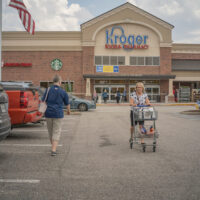
Image source: Wall Street Journal
Every week we track the business, tech and investment trends in CPG, retail, restaurants, agriculture, cooking and health, so you don’t have to. Here are some of this week’s top headlines.
The FDA is developing a rule that would require companies to maintain records of their supply chains and thereby facilitate the adoption of blockchain technology in the food industry.
New York City school cafeterias will switch to an entirely vegan menu on Fridays amid new efforts by city officials and the Biden administration to help provide critical nutrition for millions of kids.
A new study assessing the potential impacts that climate change could have on coffee production has revealed that Brazil, the world’s largest coffee producer, will see its most suitable coffee-growing land decline by 79%.
Our newsletter takes a lot of time and resources to produce. Make a one time or monthly contribution to help us keep it going. Whether it’s $5 or $500, every bit helps and shows us that you value our work.
Check out our weekly round-up of last week’s top food startup, tech and innovation news below or peruse the full newsletter here.
1. FDA Official Says New Rule Could Boost Blockchain-Based Food Tracking – Wall Street Journal
The proposed rule could spur adoption of a farm-to-fork food traceability program used by companies including Walmart and Nestlé.
2. Vertical Farming Operator Kalera Pursues SPAC Listing at $375M Valuation – AFN
Kalera, a vertical farming operator, expects its deal with Nasdaq-listed SPAC Agrico Acquisition Corp to close in the second quarter of 2022.
3. Austria: ‘Microdrink’ Maker Waterdrop Raises $70M – Food Dive
Waterdrop seeks to simultaneously increase the amount of water people drink while lowering the amount of plastic bottles used for consumption.
4. Kula Bio Closes $50M Series A to Further Develop Its Low Emission Biofertilizer – AFN
The startup says its alternative to traditional nitrogen fertilizer is crop-agnostic, non-GMO and cost-effective for farmers.
5. Lunchbox Raises $50M with Contributions from Sweetgreen, Doordash Execs – Restaurant Business
With the new funding, the online ordering company will go after big chains and make more acquisitions. It’s also changing its tone on third-party delivery.
6. NYC Launches Vegan Fridays at Schools As USDA Announces New Nutrition Standards – Abc
New York City school cafeterias will switch to an entirely vegan menu on Fridays amid new efforts by city officials and the Biden administration to help provide critical nutrition for millions of kids.
7. Climate Change Will Make Coffee More Expensive – Fast Company
The world could lose half of its best coffee-growing land under a moderate climate change scenario. Brazil, currently the world’s largest coffee producer, will see its most suitable coffee-growing land decline by 79%.
8. UK Makes First Tentative Step to Join The Global Sustainable Protein Race with Post-Brexit Report – Green Queen
The 100-page report has included one six-line paragraph alluding to potential novel food regulation updates. Sustainable protein was named as the key focal area though the term is not explicitly defined.
9. The Restaurant Dive Outlook on 2022 – Restaurant Dive
Restaurants are investing in labor-saving technology, wage hikes and new delivery strategies to prepare for a year that may still be squeezed by labor, supply chain and inflation pressure.
10. The Grocery Dive Outlook for 2022 – Grocery Dive
Food retailers continue to benefit from at-home eating, but they also face a slew of challenges that promise to make this a dynamic year for the industry.
11. E-Grocer Good Eggs Sees West Coast Opportunity – Grocery Dive
The company kicked off same-day service in Los Angeles on Tuesday, with plans to expand to additional markets and launch one-hour service.
12. Starbucks Union Organizing Reaches 60 Stores in 19 States – Restaurant Dive
The union drive is small compared to the coffee behemoth’s roughly 9k US corporate stores, but the movement may still mark a milestone for organized labor.
Our newsletter is the absolute easiest way to stay on top of the emerging sector, so sign up for it today and never miss the latest food tech and innovation news and trends, Already signed up? Share the love with your friends and colleagues!





